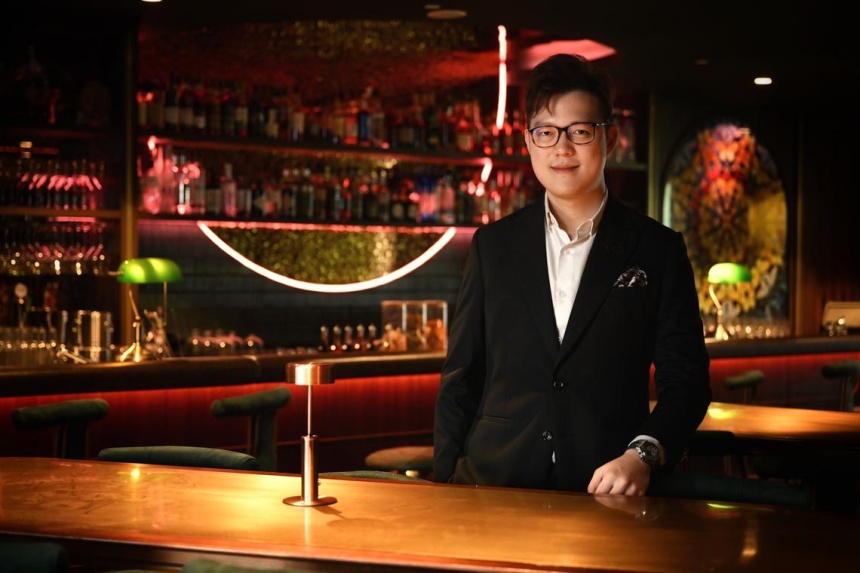SINGAPORE - A legal battle has erupted for the control of home-grown hospitality group Tipsy Collective, a year after the firm’s co-founder and former group chief executive Derek Ong died.
The group’s other co-founder and executive chairman David Gan Jia Liang, 32, has applied for an interim court injunction against several Indonesian stakeholders, who he claims in court documents are attempting to seize control of the board.
Mr Gan, represented by lawyers from Selvam, is suing eight parties – including Indonesian investors and their companies, and Tipsy Collective. In his court submissions, he said the shareholders tried to remove him as a director of the company through a memo, which was dated May 1, 2024.
Founded in 2019 by Mr Gan and Mr Ong, Tipsy Collective runs 10 restaurants and bars here, four of which are located in the heartland. In January 2024, the company opened its first overseas outlet, Tipsy Flamingo in Kuala Lumpur.
Mr Ong’s sudden death in August 2023 came just a week before the scheduled opening of Tipsy Unicorn – a 19,000 sq ft beach club on Sentosa’s Siloso Beach. It was touted as the hospitality group’s most ambitious project yet.
The current lawsuit, filed on Aug 5, comes nearly a year after Mr Ong’s death.
The eight defendants include Indonesian investors Reino Ramaputrabarack and Santosa Kadiman, and the firms they respectively run – Steady Property Trading and Novus International Enterprises. Both firms hold shares in Tipsy Collective.
Tipsy Collective is named a nominal defendant as the company would be bound by any judgment.
The other defendants are White Rock Asia Resources, as well as Singaporeans Tora Widjaja and Rudy Widjaja, his father.
Tipsy is represented by lawyers from UniLegal, Mr Kadiman by lawyers from WongPartnership, and the other defendants by lawyers from Morgan Lewis Stamford.
Court documents filed by Mr Gan point to a series of events that unfolded following Mr Ong’s death. His widow purportedly sold his shares to Steady Property, Novus and White Rock in March 2024.
This meant that Steady Property, Novus, White Rock and Mr Tora Widjaja increased their collective ownership in the company from 31.74 per cent to 59.39 per cent.
Court documents referred to this group as the “Indonesian shareholders”. Meanwhile, Mr Gan owns 25.06 per cent of the shares in Tipsy Collective. The remaining 15.55 per cent of the shares are owned by Mr Reuben Low Kok Cherng, a director of the company.
Mr Gan said in his court submissions that the Indonesian shareholders sent him a memo in May 2024 informing him that he was being removed as a director of the company. He claimed that this would breach a clause of the shareholders’ agreement. The clause stated that the board will consist of up to three directors, of whom one will be nominated by Mr Tora Widjaja and Steady Property Trading, and two others nominated by Mr Gan and Mr Ong.
It also noted that no shareholders’ resolution may be passed without the affirmative vote of Mr Gan.
The Indonesian shareholders had argued that the clause which requires Mr Gan’s affirmative vote for any board or shareholder resolution was no longer applicable following Mr Ong’s death and their newly acquired majority.
In a subsequent letter on July 17, the Indonesian shareholders alleged that Mr Gan had breached his director’s duties by allowing the cost of the Tipsy Unicorn project to escalate to $6 million, double the original budget.
They also accused him of causing the company to take out loans totalling $8.7 million between January 2021 and November 2023, with approximately $6 million still outstanding, alongside significant unpaid debts to suppliers and contractors.
Mr Gan had said that these decisions were taken in the best interest of the company.
The Indonesian shareholders also noted that he had not provided requested access to the company’s documents, which Mr Kadiman had sought to inspect.
The three directors of the company are Mr Gan, Mr Kadiman and Mr Low.
On July 22, the shareholders sent out a notice to call for an extraordinary general meeting (EGM) to be held on Aug 7, in an attempt to remove Mr Low and appoint Mr Ramaputrabarack as the new director, court documents noted.
To prevent the Indonesian shareholders from proceeding with the proposed resolution to remove Mr Low as a director in the EGM, Mr Gan applied for an interim injunction.

In his affidavit, Mr Gan said he is seeking to restrain the defendants from passing any resolutions without his affirmative vote.
Specifically, he is asking the court to prevent any actions to change the maximum number of directors on the company’s board of directors, or to remove Mr Low or himself as a director, pending the final determination of the lawsuit.
Mr Gan emphasised in his submissions to the court that the injunction was necessary to prevent the defendants from executing their plans, which he believes would cause lasting damage to his control and the future of Tipsy Collective.
He argued that an injunction preserving the status quo of the company would maintain business continuity and preserve the company’s existing management structure.
Mr Gan claimed he posed no imminent threat to the company as a founder and major shareholder who has been a director since 2019.
On the other hand, if the defendants are allowed to breach the shareholders’ agreement, he would lose control of the board and the company he founded, he added.
This could lead to irreversible changes in the company’s direction or the disposal of its assets before the court can make a final determination, he said.
A case conference where the court will decide what happens next will take place on Sept 11.


